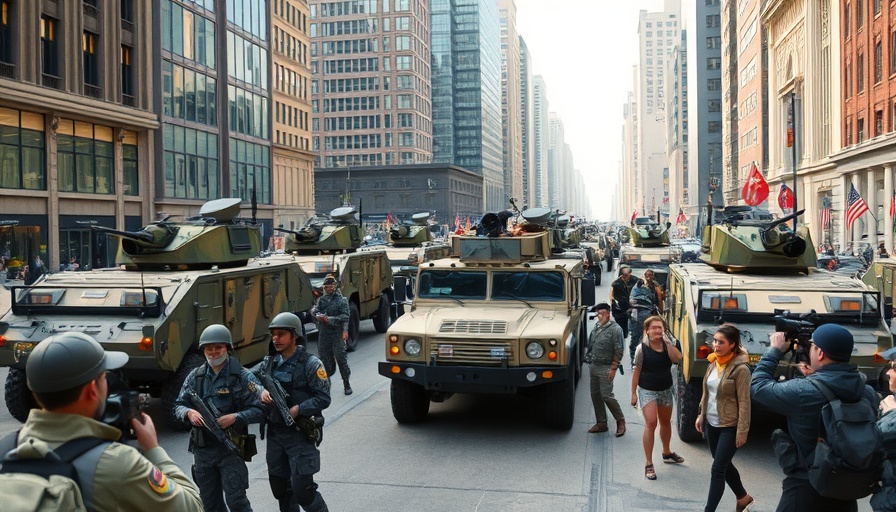
Unfolding Tensions: The National Perspective on Trump's Military Deployments
In a bold move, California has rallied an astonishing 22 states to challenge President Trump’s deployment of military troops for immigration enforcement. This coalition aims to create a protective barrier against what many view as an overreach of power by the federal administration.
Understanding the Background: Why States are Taking a Stand
The roots of this conflict lie in the tension between state sovereignty and federal authority. States have increasingly felt the pressure of federal policies on immigration, which many argue prioritize militarization over effective immigration reform. With federal judges poised to rule on the legality of these military deployments, California’s action marks a significant moment in state-federal relations.
Senator Alex Padilla's Confrontation: A Catalyst for Debate
Senator Alex Padilla's recent confrontation with Homeland Security Secretary Kristi Noem was a crucial event in this unfolding drama. Padilla, forcibly removed from Noem's press conference, underscored the rising tensions surrounding military involvement in immigration raids. His experience highlights the fears local leaders have about the safety and efficacy of such radical tactics being employed in their jurisdictions.
The Implications for Immigration Policy
This coalition of states raises questions about the future direction of U.S. immigration policy. Continued military presence at the border could exacerbate already existing community tensions. Critics argue that rather than fostering trust with immigrant communities, these deployments could further alienate them.
The Role of Community and Values in Resistance
The reaction of the public in these states reflects broader societal values regarding immigration. Many citizens believe that military enforcement in civilian spaces is not only unnecessary but that it contradicts American values of inclusion and diversity. Activists and community leaders are using this moment to amplify voices advocating for humane and comprehensive immigration reform.
Future Predictions: What’s Next for Military Involvement in Immigration?
The outcome of the federal judge's ruling will set a precedent for how military interventions are utilized in domestic law enforcement, especially in immigration cases. Depending on the decision, we could see either a reduction in military involvement or an emboldened stance by the federal government to assert its authority.
Encouraging Civic Engagement: Why You Should Care
This issue speaks directly to individuals who value civil rights and are invested in shaping the future of American democracy. Understanding the implications of military presence at the border is crucial for informed citizenship. It's essential for individuals, especially younger generations, to engage in these discussions, as their future is deeply intertwined with the political winds of today.
Final Thoughts on a Divisive Issue
As the legacy of these actions unfolds, the nation collectively grapples with the broader implications of such militarization. The tension between states and the federal government over immigration enforcement is not just legal; it’s deeply personal and etched into the fabric of American society.
Take Action: Stay Informed and Engaged
With ongoing developments in national security and immigration policy, staying informed is more critical than ever. Engaging with local organizations working on these issues can help amplify your voice where it counts. Whether through advocacy, education, or simply staying updated on political news, every action contributes to a collective effort towards a more just society.
 Add Element
Add Element  Add Row
Add Row 



 Add Row
Add Row  Add
Add 


Write A Comment